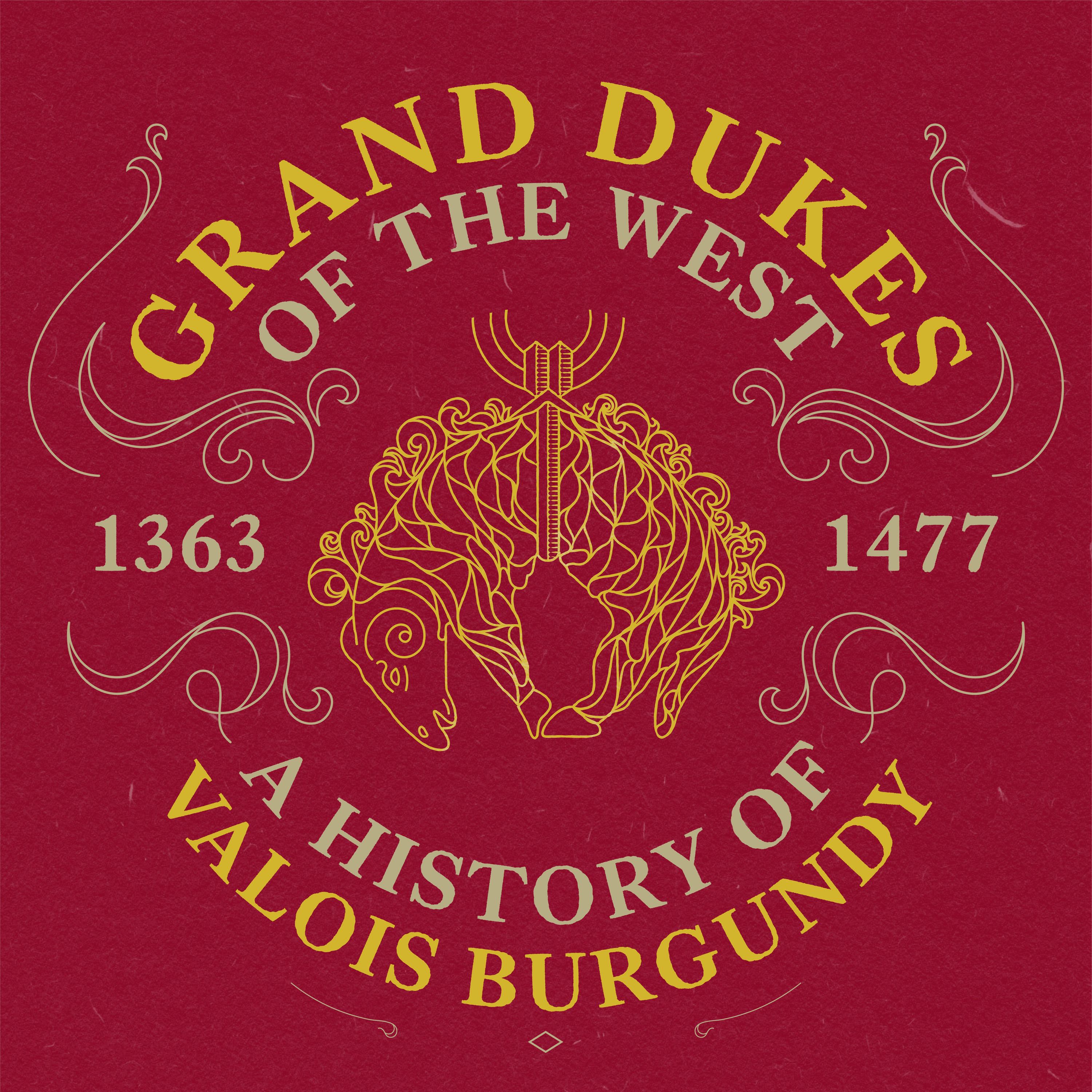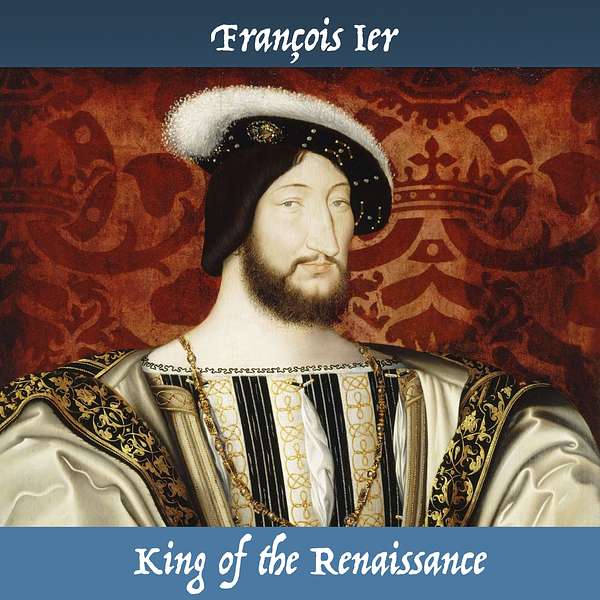
La Fayette, We Are Here!
La Fayette, We Are Here!
François I, King of the Renaissance
We delve into the life and reign of King François I (Francis the First), who ruled France from 1515 to 1547. Despite facing significant challenges and experiencing notable failures during his rule, François I remains one of the most renowned French monarchs. He is particularly associated with the Renaissance in France and has left a lasting legacy, particularly in the fields of arts and sciences.
He's also responsible for the establishment of New France by sending Jacques Cartier across the Atlantic. Join me for one of the most extraordinary adventures of the Sixteenth century!
Timecodes:
Introduction
03:55- An Unexpected King
09:02- A Young and Ambitious King
16:50- A Builder King
26:24- A Torn King
32:33- An Old King
36:25- Conclusion
Music: Marche pour la cérémonie des Turcs, composed by Jean-Baptiste Lully, arranged and performed by Jérôme Arfouche.
Artwork: François Ier around 1530 by Jean Clouet (Louvre Museum).
Reach out, support the show and give me feedback!
A young couple decides to spend their honeymoon in France. They first visit Paris, like everybody else. They explore the remarkable museums and walk miles and miles in the City of Lights, amazed by its wonders. After a few days in the capital, they take a train from Gare d’Austerlitz and head for Orléans. There, they visit the superb cathedral and learn about the exploits of Jeanne d’Arc. Afterward, they rent a car and go to explore the French countryside along the Loire River Valley.
Following the picturesque Départemental 15 road, they pass through charming towns and villages like Olivet, Jouy-le-Potier, or La Ferté-Saint-Cyr until they reach their destination: the Château de Chambord, the largest of the Loire Valley Castles. It is hidden in a park of 50 square kilometers and nicknamed the 'Diamond hidden in the woods.' After walking around, they enter the magnificent castle.
They stop and admire the famed open double-spiral staircase. A man also stops and says, 'Thinking that they both were there at the same time together and they had this built.' They ask, 'Who are you referring to?' He answers, 'Well, Leonardo da Vinci. He designed the staircase. And, of course, the king who commissioned it, François Ier.
Welcome to "La Fayette, We are Here!", the French history podcast for the American public, by a Frenchman! I am your host, Emmanuel Dubois, and today we will delve into the life and reign of King François Ier, known in English as Francis the First, who governed France from 1515 to 1547. Despite facing significant challenges and experiencing notable failures during his rule, François Ier remains one of the most renowned French monarchs. He is particularly associated with the Renaissance in France and has left a lasting legacy, particularly in the fields of arts and sciences.
Before we proceed, I would like to express my gratitude to the patrons who support this podcast on Patreon. Your generous contributions are greatly appreciated and help cover the expenses associated with running the show, including hardware and hosting fees. As a hobbyist podcaster, I personally cover these costs, so your support means a lot to me. If you enjoy the podcast and would like to become a patron, please visit patreon.com/lafayettepodcast. By becoming a patron, you can choose your contribution amount and gain access to future episodes before they are publicly released. Alternatively, if you want to support the show without committing to a monthly fee on Patreon, you can make a one time donation on buymeacoffee.com/lafayettepod. Both links are in the show notes. Thank you all for your support. Now, let's return to the 16th century and continue our exploration of François Ier's reign.
A small clarification. As you may know, one of the goals of this podcast is to bring more French into your lives. Therefore, for the remainder of the episode, I will refer to the king as François, not Francis. Does that sound good? On y va !
An Unexpected King
François was born on September 12th, 1494, at the Castle of Cognac, which is located a little over 100km north of Bordeaux. His birth name was François d'Angoulême, and initially, he was not destined to become king. He was not the son of the king, his parents were Charles d'Angoulême and Louise de Savoie. His predecessor, Louis, did not have any surviving male heirs and faced a complex internal political situation. Let's delve into this story for a bit to better understand how François ascended to the throne of France.
The king of France from 1498 to 1515 was Louis XII. He becomes king himself when Charles VIII dies without an heir. See, Louis is Louis d'Orléans, the closest branch of the reining Valois family. His common ancestor with Charles VIII is Charles V, who played an important role in the Hundred Years' War. I encourage you to listen to my episodes on the subject to learn more about him.
Louis was married with Charles' sister, Jeanne. Charles wanted to fuse the two branches of the family together... ah, inbreeding, always fun. Anyhow, upon becoming king in 1498, Louis annuls the marriage with Jeanne, who was physically deformed. Louis had eyes on a bigger prize: Charles' widow, Anne de Bretagne. And he wanted his own branch of the family, the Valois-Orléans, to go on.
Therefore, Louis marries Anne in 1499, mainly to maintain recently annexed Brittany within the French kingdom. I'm cutting through a lot of details here but it is the main idea. Many things then happen during his reign but a few are really important for François. The first is that Louis expands the war in Italy initiated by his predecessor. Long story short, the French king had pretensions on the kingdom of Naples, then in the Duchy of Milano, because the Anjou family, another branch of the Valois, was the reigning family there in the mid fifteen century. The conflicts, as there will be many Wars of Italy, starts in 1494 and will end in 1559. François will be at the hearth of them.
Another major political accomplishment is the rapprochement with England. After over a century of war, the two kingdoms were getting closer. To enhance this, Louis takes advantage of Anne's death in 1514 to marry Henry VIII's younger sister Mary Tudor. She's 18 and he's 52, it almost sounds like a Hollywood casting. Ahem. Anyhow, they do get married but fail to get a son, or any children for that matter. The king's health was rapidly declining and Louis has to resigned himself. His cousin François will inherit the throne, making the Valois-Angoulême the reigning Capetian family branch until 1589 when Henri III is assassinated.
Charles did make preparations for this though. In 1506, he promised his daughter Claude to his cousin François and they got married in 1514. This added legitimacy toward François's claim to the throne and would reinforce his stature once king. I have to say that François wasn't his first choice, it was Charles of Habsbourg, known as Charles V after 1520. We will get back to him very soon.
François starts to be treated as a king-in-waiting by the court and contrasts with the old monarch. Louis is declining everyday, whereas François is young, very tall, about 1.95m or 6.4', and quite strong with a wide frame. On January 1st, 1515, Louis dies and François becomes King of France, first of the name. He is crowned on January 25th and immediately starts working to impose his style and ideas. His reign will be marked by a few key factors: renewed religious troubles, the Wars in Italy, the rivalry with Charles V of Habsburg, scientific and artistic progress under the label of the Renaissance and finally, continuous modernization of the French State, notably its administration. He's also probably the person most directly responsible for the fact that some of us speak French in North America. Quite the list, isn't it?
A Young and Ambitious King
When he becomes king, François has to deal with a major geopolitical concern: the ongoing conflict in Italy. Louis XII had lost the Duchy of Milano in 1512 and François aimed to get it back. But he faced very powerful enemies, notably the Swiss mercenaries. At this period, the Swiss were all but neutral. They had a remarkable military force that would be hired by the various European powers in their wars. Louis XII had used them very effectively, but after he failed to pay them what he'd promised, they turned against him. The Swiss allied with Massimiliano Sforza, the Duke of Milano, and ousted the French in 1512 as I mentioned. To take it back, François would have to defeat this remarkable foe.
François claimed that he should have the Duchy of Milano and initiated a campaign right as he became king, but not before changing the main advisors and ministers at the French court. It was a new age for the French crown, although he used centuries old linage claims to attack Milano... oh well, monarchial politics are never dull. He first offered to pay the Swiss their due and to get the Duchy back through diplomacy. It was refused, and François answered by sending 50,000 troops over the Alps. Probably the best army in Europe at this point in time and certainly the one with the strongest artillery.
François arrives with his army at Marignano, just south of Milano, in September 1515. The battle is engaged on September 13th and will last for a couple days. The king himself is on the battlefield, charging the enemy repeatedly, taking huge risks. Soldiers on both sides are incredibly brave and fight four hours and hours. The French win thanks to clever manoeuvring of their remarkable cavalry and by using their superior artillery. The king is also helped by remarkable military commanders like Charles de Bourbon, Louis de la Trémoille, Robert III de la Marck de Bouillon, the Marshall de Lautrec and the famous Knight Bayard.
It is a complete, if bloody, French victory. The Swiss are utterly defeated, an extremely rare occurrence. François wins back the Duchy of Milano and signs a treaty with the Swiss for an "Eternal Peace" the next year. It actually works, and the French will be able to call on Swiss mercenaries in future conflicts. It also forces the Pope Leo X, who had supported François's enemies, to sign a concordat at Bologna, in 1516. I'll get back to this a bit later.
Small parenthesis, Marignano 1515 is called Marignan 1515 in French. And let me tell you, every French schoolboy and girl knows that date as a great victory. It's one of these key moments in French military history that resonates to this very day. François had started his reign with a bang. A resounding military victory, a major territorial conquest and an agreement with the papacy. But you know what they say when you fly too close to the sun?.. You might get burned.
At this juncture in time, the main powers in Western Europe are France, Spain, England and the Holy Roman Empire. This one is particularly interesting as it is neither Holy, nor Roman, nor a real Empire... Nevertheless, it's a State formed of many smaller States and at this point corresponds roughly to modern Germany, Austria, Switzerland, Belgium as well as parts of Poland, the Netherlands and Northern Italy. Its emperor is elected and in 1519, the election is mostly between François and Charles of Habsburg.
Charles wins the election and becomes Emperor in 1520. He also rules over the Netherlands and Spain. He also has pretensions over Burgundy. He's basically a mix of most of European major houses, and he has the consanguinity to prove it. He becomes François's main rival, with Henry VIII of England playing the wild card. The English sovereign will sometimes ally himself with the French and sometimes with the Habsburg, depending on his interest. François did try to win him over in 1520 with the edification of the Camp du Drap d’Or, or the Field of the Cloth of Gold, a great diplomatic reunion between the two monarchs. But Henry remained unimpressed and actually allied himself with Charles the next year.
1521 is definitely a bad year for François. He loses Milano, just like Louis XII before him, and sees the king of England become his enemy. At this point, France is truly encircled by enemies. On top of that, religious unrest begins. Since Martin Luther had written is 95 thesis in 1517, the Protestant Reformation was gaining speed and social order was not as sure as it used to be. Charles has to face it in Germany, but François will soon have to face it in France too. In the meantime, both monarchs will got at it in Italy, where François tries to reconquer the Duchy of Milano.
François launches multiple campaigns to regain the Duchy in 1522, 1523 and 1524. Even though the French armies penetrate deeply in Italy, the campaigns are failures. The worst blow comes in 1525, when François lays siege to the city of Pavia, just south of Milano. An Imperial relief army arrives and defeats the French army. François is wounded and captured. He is then sent to Madrid as a captive. It's a terrible defeat for the French, reminiscent of the defeat at Poitiers when king Jean II was captured by the Black Prince in 1356.
François spends the next year as Charles's prisoner. Oh, he's treated as a king, but he has to sign a humiliating treaty in January 1526 where he gives Burgundy back to Charles and has the renounce any pretension over Milano, Flanders or Artois. He also has to marry Charle's sister, Éléonore, since Claude died in 1524. François actually accepts and leaves two of his sons as hostages. The moment he's back in France, he denounces the treaty, at least on the territorial parts. Luckily, not respecting your word and a signed treaty didn't become a hallmark in modern politics... ahem. To be fair, François did have a card up his sleeve: his mother.
A Builder King
During his adventures in Italy and Spain, François had left his mother in charge of the kingdom. Louise de Savoie excels at this. She's a shrewd politician and knows her way around the various European courts. While François was a captive, she acted behind the scenes to ally various powers against Charles, who was becoming way too powerful. She plays a key role in the creation of the League of Cognac, an alliance of France, England, the Papacy, as well as some Swiss mercenaries and Italian republics. Their goal is to attack the Holy Roman Empire in Italy and to keep Charles in check.
It works. After many major campaigns from 1527 to 1529, including one that saw Rome being sacked, Charles has to negotiate again with the French and their allies. They sign a new treaty in 1529 at Cambrai, known as the Paix des Dames, the Ladies' Peace, as it was mostly negotiated by Margaret of Austria, Charles' aunt, and Louise de Savoie. François gets Burgundy back and his two sons, but has to renounce his claims in Italy and pay large sums of money. There is peace, for now...
Let's take a break from François's military adventures to dive into his internal politics and contributions to France. François is well educated and quite familiar with Italian culture, literature and science. During the past century or so, Italy, especially cities like Florence or Venice, has been the epicentre of an artistic and scientific revolution known as the Renaissance. It's actually very complex, but the main idea is that thinkers, artists and scientists rediscovered texts and realizations of the Antiquity, adopted them and improved upon them to usher a new humanist intellectual age in Italy. It is seen with the explosion of fantastic writers, painters, sculptors, engineers and architects in the country. The Wars of Italy of the early and mid-sixteen century have a propagating effect. The Renaissance wasn't Italian anymore, it was European. And France was the country that benefited the most at the time.
Because of François's interest in the arts, literature and science as well as his country's wealth and resources, many Italians artists and scientists moved from Italy to France. French scholars and thinkers also changed their ways, inspired by their Italian counterparts. Since the printing press was invented in 1453 by Gutenberg, ideas and concept could flow way faster than ever before. Changes that would have taken generations before only took a few years or even months.
François is perfectly aware of this. In 1526, just after his return from captivity, he has many Italian artists come to his castle of Fontainebleau to enhance it and redecorate it. It is part of an effort of modernization of the many existing royal castles along the Loire river and to build new ones. The biggest project by far is the Château de Chambord, which I talked about in my introduction. It was initiated in 1516, with the king wanting a magnificent castle to commemorate his glory and immortalize him. It will be built over a period of 23 years and is a remarkable achievement. With its 156m wide façade, its 426 rooms and 282 fireplaces, it is majestic and impressive. Even though the full extend of his implication is not perfectly clear, the castle benefited from Leonardo da Vinci's genius and ideas. He had been invited in France by François in 1516, taking in his luggage his then unfinished Mona Lisa. He will actually finish it in France, that is why it is in the Louvre today.
Many other projects are initiated during François's reign, some under his direct impulsion. We can quote the Château de Chenonceau, the Château d'Azay-le-Rideau or the gardens at the Château de Villandry. French architecture is definitely transformed forever, with a definitive break from medieval habits after 1530.
French arts become more and more important. With renewed interest from the crown and the rich nobles of the country, schools are created and intellectual movements initiated. This will help French arts, science and craftsmanship to become more and more important until becoming dominant under Louis XIV, a century and a half later. Speaking of the Sun King, François has a lot to do with the reinforcement of the royal authority. Along with his mother, he centralized and modernized the administration, diminished the local lord's judicial powers and took more control in religious affairs. For example, in 1516, he'd signed the Concordat of Bologna that I mentioned earlier. This concordat with the Papacy allows the French king to name bishops in his kingdom. These reforms will be the basis for the establishment of the absolute monarchy in France in the seventeenth century.
François makes a couple of other changes that I find important here. The first is his alliance with the Ottoman Empire of 1536. Since 1526, discussions had started between the French and the Ottomans. An extremely surprising act in this time period, and one that shows François's pragmatism. Even though he was the Utmost Christian King, he didn't mind allying himself with the major muslim power in the world if it served his purposes. Luckily for him, the current sultan is Suleiman I, known as Suleiman the Magnificent. He is as pragmatic and clever as his French counterpart. The two men will understand each other and France will be the first European power to gain trade rights in Turkey. Later on, the Ottoman naval power will come into play in the Mediterranean to keep emperor Charles in check.
Another important change concerns language. Before 1539, all official acts in France had to be written in Latin. The French people actually spoke various languages and patois, not only French. François wanted to unify the country linguistically and therefore wrote the ordnance of Villers-Cotterêt in August 1539, proclaiming that each and every official act in France had to be written in French. It is a major shift, since Latin was the language of the Church and of the highly educated, whereas French was the language of the people, at least in the northern part of the country. It's a clever way to centralize and reinforce authority. You see, French as we know it comes from the langue d'Oïl, the language spoken north of the Loire river, including in Paris and by the French court. In contrast, the south spoke the langue d'Oc. By making everybody speak the northern variant, the "official" French if you will, it helps the State being understood by everyone in France. Reinforcing the royal power and the embryonic French national sentiment. Of course, the laws, edicts and other official writing will be translated in local languages, but French will become the only used language in the country over the next couple of centuries, at least when it comes to administrative matters.
Speaking of which, François introduced many financial changes in the kingdom, notably on the matter of tax collection and distribution. François was burning money through his wars with Emperor Charles and his multiple construction projects, so he had to find new revenue streams. He introduced customs fees around the border of the kingdom and increases the two main taxes. The taille, only paid by the peasantry, is doubled, whereas the gabelle, a tax on salt, is tripled. He also allows rich bourgeois to pay their way to gain offices previously reserved to noblemen. It does replenish the kingdom's coffers, but it contribute to the inequalities that will culminate in 1789.
A Torn King
François is also responsible for taking French ambitions abroad, across the Atlantic, actually. Following the advice of Jean Le Veneur, the bishop of Lisieux and great chaplain of the king, he sends Jacques Cartier, a Breton maritime explorer from Saint-Malo, to explore the recently discovered America. He hopes to find islands full of gold and other riches, but instead, the explorer discovers the coast of Gaspé in July 1534. New France is established, and François I becomes its first king.
Enthused by this discovery, François sends the explorer again in 1535. This time, Cartier travels down the Gulf of Saint Lawrence. He establishes the post of Saint-Croix, which is now the location of Québec City, and finds a settled land further up the river. It is called Hochelaga, but he names it Mont-Royal, which is now the city of Montreal, where I live. Finally, Cartier gives this whole territory an Iroquois name: Canada. This makes François the first king of Canada too.
During the following years, more expeditions are organized under François to discover more territory in this vast North American land from 1538 to 1543. Although the French fail at the time to establish a colony, as they were struck by the very harsh winter conditions, the French seeds were indeed planted in Canada. They would come to fruition in the seventeenth century with the likes of Jeanne Mance, Maisonneuve, Champlain, and others. François's impact on global geopolitics for the upcoming centuries is often ignored, but it shouldn't be. If he hadn't supported these costly expeditions, maybe the French would never have settled in North America. Just imagine the impact of that. Maybe a Spanish Canada? Or a completely English North America? Who knows, but the world as we know it now would be different if it weren't for François I of France. I am certain of that.
François was also facing a new challenge: the Protestant reformation. In the sixteenth century, the Catholic Church was in dire need of coherence and modernization. The concordat of 1516 is example of that, with the French monarch trying to reform the institution in his own way in France, to his advantage of course. But there is a reason protestantism gained so much ground so rapidly in Europe. The Holy Church was corrupt, ill-led and wasn't there for its people anymore. Adding to that the humanist principles of the Renaissance, that put man at the centre of philosophical thought instead of God, and you have an earthquake in the spiritual landscape.
Repression started in 1523 with the first French protestants being killed, although François didn't support this behaviour at the beginning. He was still weighing his options. And, as we saw before, he wasn't a bigot and understood the need for religious change. But after a few years, it became apparent that the Reform was a movement that favoured a clear cut with the Roman Catholic Church, and that was going too far for the French sovereign. He was all for having control over the Church in France and being able to oppose the pope, but he didn't want to cut ties and be considered a heretic. It's one of the things he had in common with the Holy Roman Emperor Charles and it actually helped the two men find common ground in the 1530's and 40's.
François was lenient towards the reform for several years, supported in this by sister, Marguerite de Navarre. She was in regular contact with Guillaume Briçonnet, bishop of Meaux who favoured changed within the Catholic Church, without supporting the Protestant Reformation of course. But everything changes suddenly in France following a crisis.
On October 17 1534, anti-Catholic posters are glued on several public building in Paris, Blois, Rouen, Tours and Orléans. This is the famous affaire des Placards. It provokes an uproar and François is himself deeply shocked by this. He finds some placards on his chamber's doors at this castle of Amboise and he's deeply offended. This is both an attack on the Catholic Church but also on the French king, it is a crime of lèse-majesté. These texts were entitled quote: "True articles on the horrible, great and important abuses of the papal Mass, invented directly against the Holy Supper of our Lord, the only mediator and only Savior Jesus Christ", end quote.
François is absolutely furious and puts an end to his tolerant policy right away. He has several people arrested and executed, including Antoine Augereau, suspected of having printed the posters. Many protestants flee France, including the famous Jean Calvin, this Swiss-born reformer who brought Luther's ideas in France and contributed with his own. From then on, the French crown was in a state of war with the Protestant reform, and it will only grow worse over the next decades with the Wars of Religion from 1562 to 1598, but this is a story for another time.
An Old King
In the 1530's, François was getting older. Once an athletic and strong man, he now found himself overweight and in poor health. Due to a fistula between his anus and testicles, he could no longer ride his horse or walk as much as he used to. His physical condition was undoubtedly declining, and he faced many more challenges during the last fifteen years of his reign.
Let's first talk about his old rivalry with Charles V. In the late 1530's, there were hopes for peace between him and François. They had one thing in common: catholicism. Charles was even more in hot waters than François when it came to the Protestant Reformation and sought the French king support in religious matters. During the Winter of 1539-1540, Charles is even allowed to go from Spain through France to the Netherlands to save time to quell a rebellion in Gent. Charles is even granted hospitality in the French king's castles. The constable of France, the chief of the army to give him a modern title, Anne de Montmorency favours this rapprochement between the two leaders. There is also a political goal behind this leniency. In exchange for helping Charle's out, he should let François have Milano. Sadly, Charles backtracks on this and gives the coveted Duchy to his son Philippe and the rivalry starts again.
War starts again in 1542 when French envoys to Suleiman the Magnificent are killed by Spaniards on their way. The French army goes in Italy and Charles is supported by Henry VIII, always the rogue element in the European military game. This is considered the ninth war of Italy, the last one in which François will participate. The Alliance system of the time goes into full force with the Scots, traditional allies of the French, attacking the English at Solway Moss, but suffering a defeat. The Ottoman fleet helps the French army to lay siege to the city of Nice in 1543. Even though the French are successful in Piedmont, the Imperial army and their English ally have entered Northern France and threaten to go all the way to Paris. Charles and François come to an agreement in 1544 that sees France keep Savoie and Piedmont, plus Charles renounces to Burgundy definitely. A couple of years later, England and France also sign a peace treaty.
During his reign, François enjoys a relatively easy time in France for most his reign, but tensions grow higher between 1535 and 1547. The mix of religious divides and of heavier taxation is very damaging to social order. France had been relatively quite for the last few decades, not experiencing the major revolts seen in Germany for example, but that was rapidly changing. As I mentioned, François becomes less tolerant towards the Protestants in his later years and his successor, his son Henri, will go even further in his repression of the movement. France was in for a hell of a ride in the second half of the sixteenth century.
In early 1547, François is gravely ill and has severe fevers. Even though conscious and lucid in his last moments, he dies of sepsis on March 31st 1547 at the castle of Rambouillet, aged 52. His son Henri becomes king Henri II on the day of his 28th birthday.
Conclusion
François was gifted and impulsive. Educated but sometimes shallow. Modern but also reactionary. He was certainly clever and not a bigot, he proved it both with his foreign policy and his attitude towards women. He had too many mistresses to count, including some during his captivity in Spain. Even though he was accommodating and enjoyed the company and advice of others, he took his role as king seriously and considered himself to be the centre of power. He his the first king insisting on being called "Your Majesty", a formula normally used only for emperors. He certainly believed like king Philippe Auguste before him that he was an "emperor within his kingdom" and signed his patent letters with the expedient "Car tel est notre plaisir" or "As this is our desire". The king's desires were indeed orders.
Interestingly, he was always in favour of having women advising him and being present at his court. He valued their advice and their somewhat different take on State matters. His mother, sister and wives played important roles in his decision making and on their own.
He is also known as the king who brought the Italian Renaissance to France, an intellectual movement that had huge ramification for every strata of the country. From philosophy to architecture, from religion to science, from art to politics. Not an aspect of French life was untouched by this massive change coming from the other side of the Alps. François chose to embrace this change. A less open king might have try to placate it or to destroy it, and France as we know it today might have been very different. I do believe that the first half of the sixteenth century is one of those key moments in French history that could have make or brake the country in the long term.
With a worse king, France could have taken a direction that would have prevented it from becoming the main military and economic power under Louis XIV and from gaining a colonial empire. I'll leave it to you if this is for the best or for the worst, dear listeners, but it is very clear I think that France's destiny was profoundly altered because of François's choices and personality.
François said, "I can make a nobleman, but I cannot make a great artist." He knew he had to have the best of the best around him to achieve great things. That's why he had Leonardo da Vinci brought to France. That's why he supported authors, poets, and thinkers like François Rabelais or Pierre de Ronsard. That's why he supported explorers like Jacques Cartier. He believed that there was greatness in humanity, and he believed that part of his role as the king of France was to protect and encourage the men and women who bore that greatness and could make it shine on his kingdom and on himself. Thank you for listening. Au revoir.
Podcasts we love
Check out these other fine podcasts recommended by us, not an algorithm.
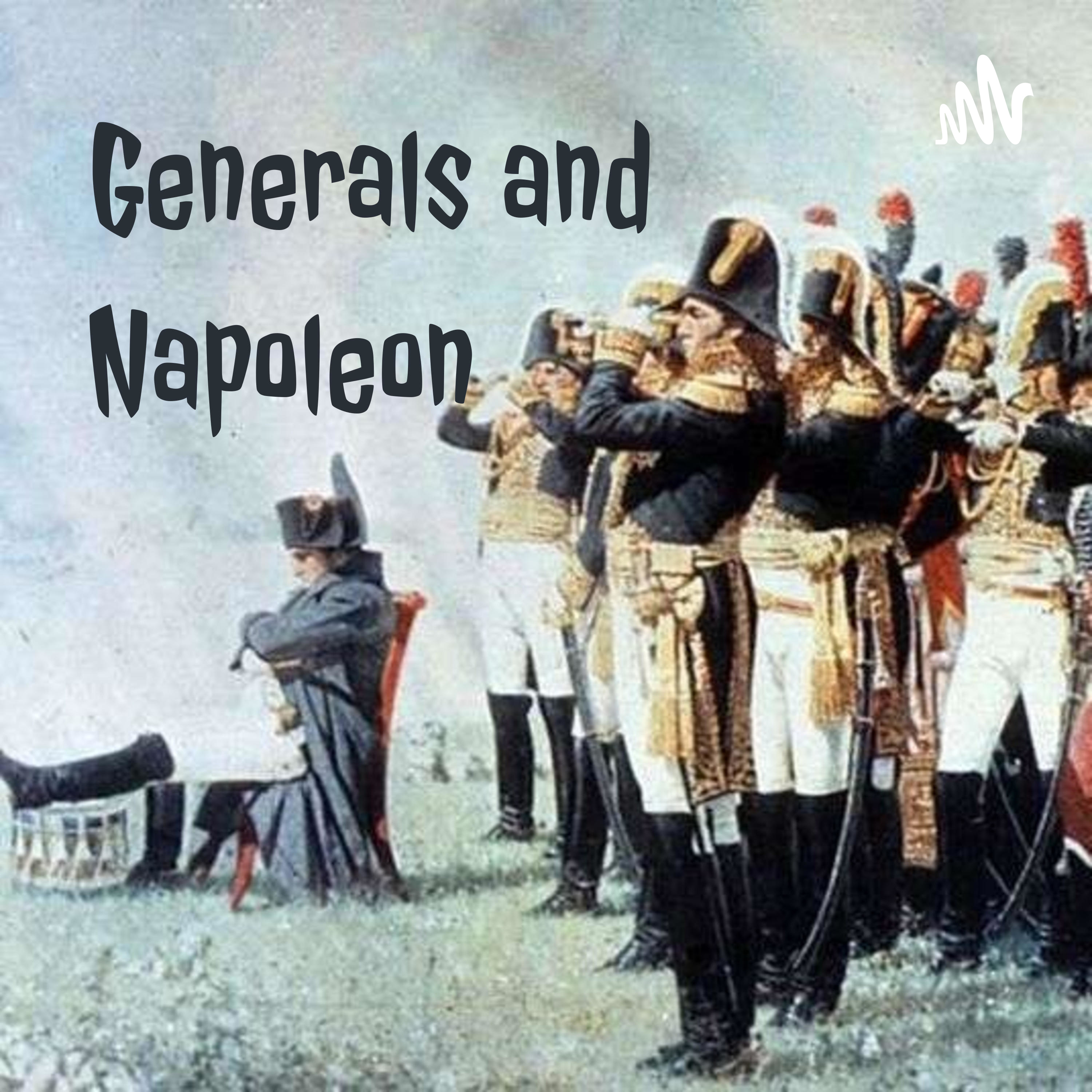
Generals and Napoleon
John W. Viscardo
Shipwrecks and Sea Dogs
Rich Napolitano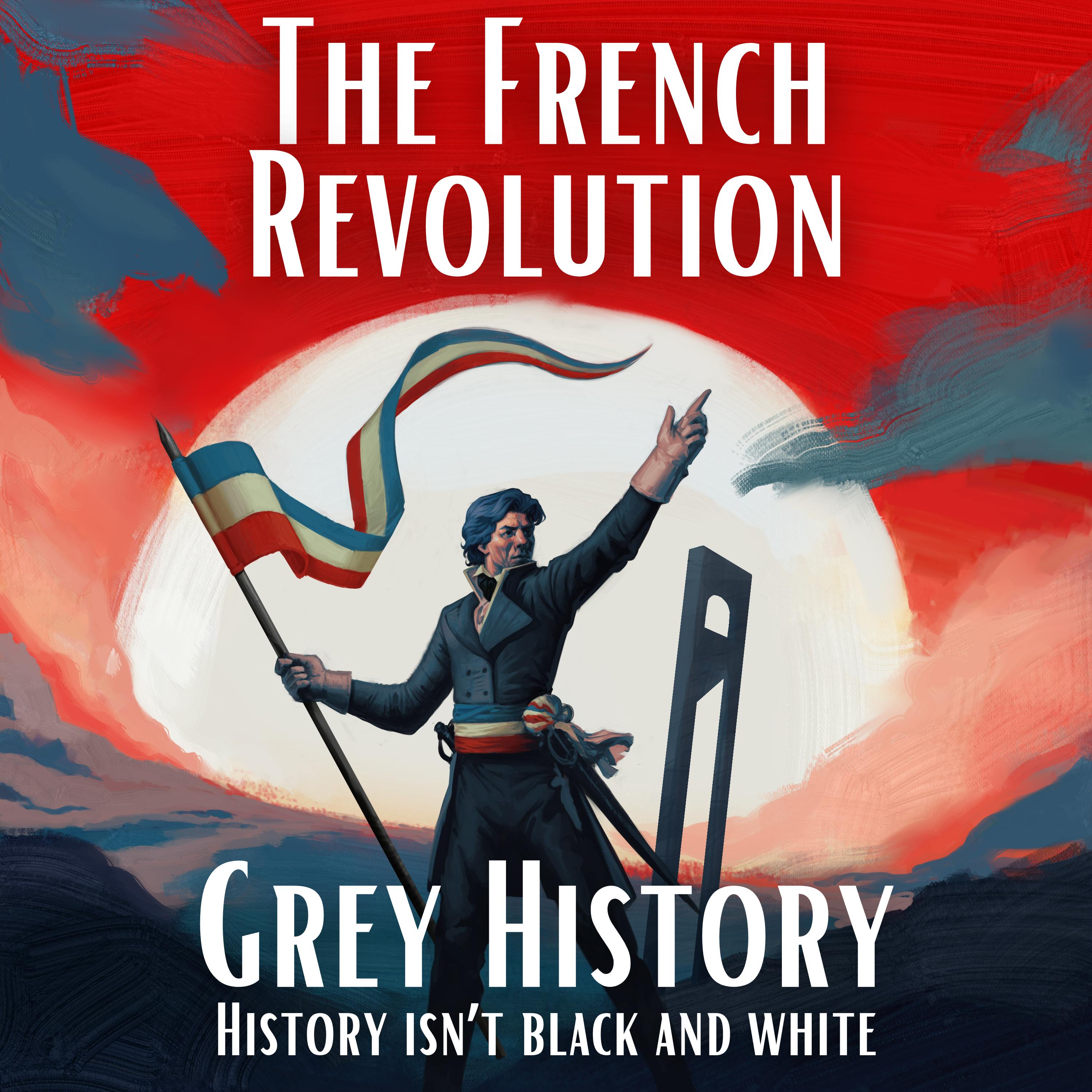
French Revolution & Napoleon (Grey History)
Grey History (William Clark)
The Life and Times of Frederick the Great
Alec Avdakov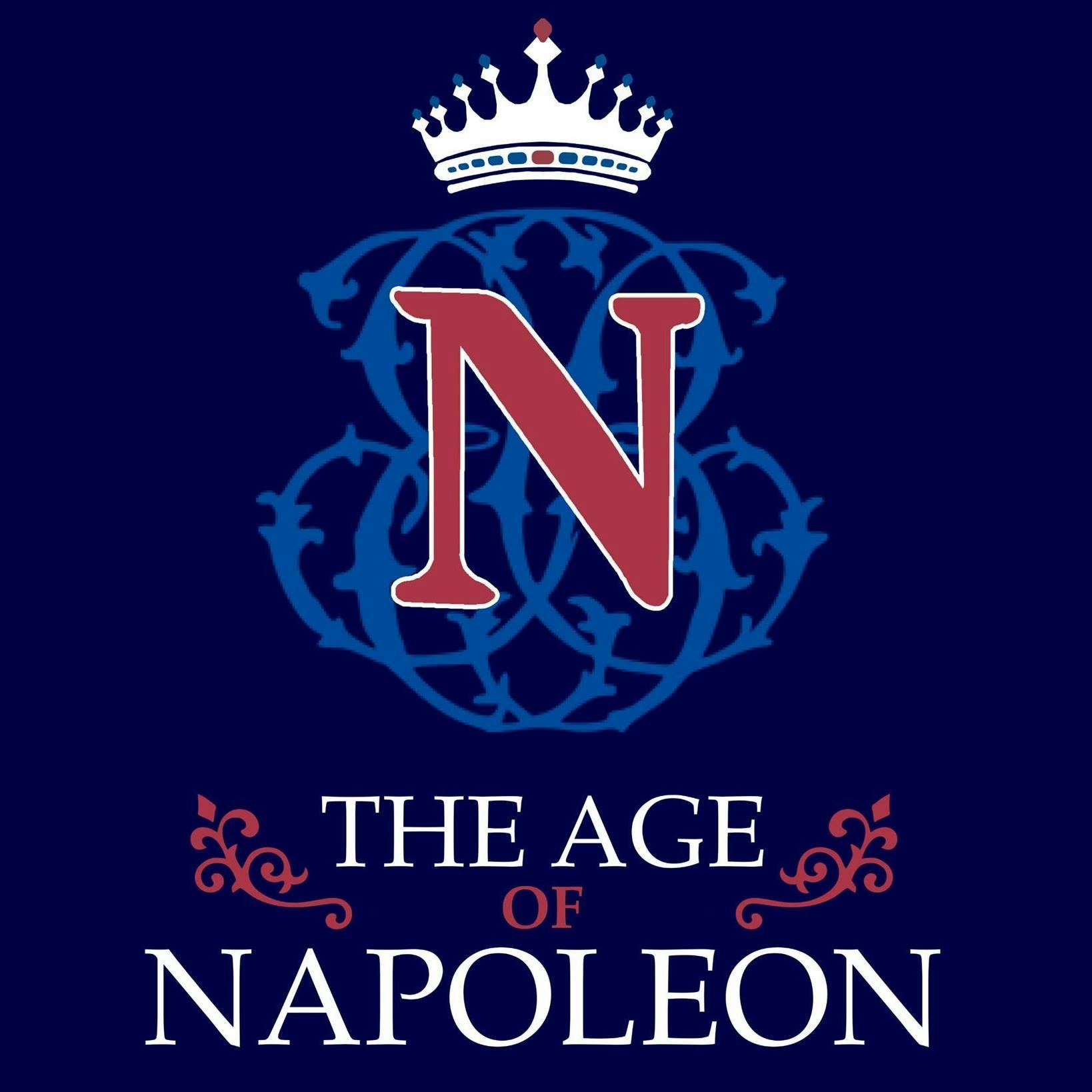
The Age of Napoleon Podcast
Everett Rummage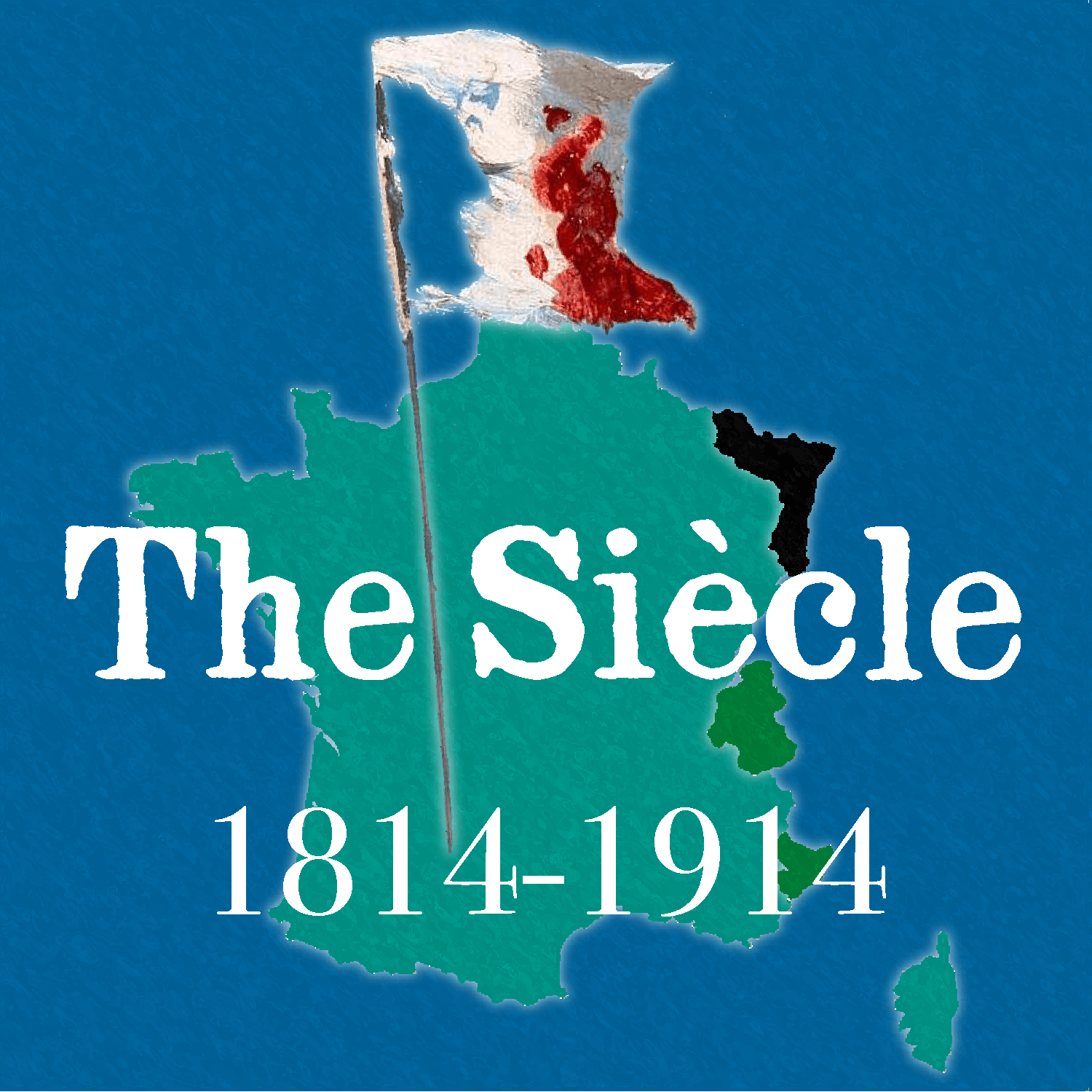
The Siècle History Podcast
Evergreen Podcasts
The Napoleonic Wars Podcast
Zack White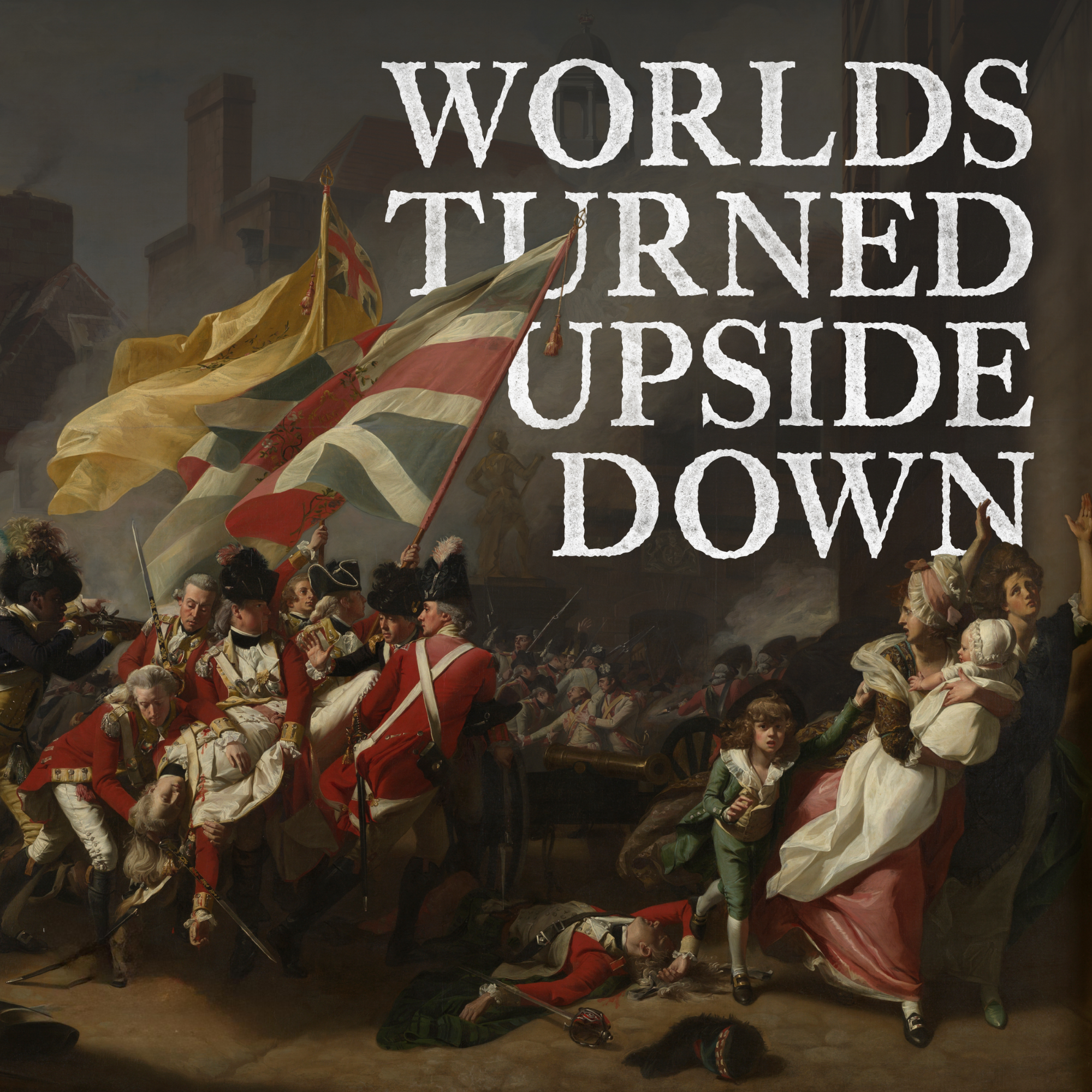
Worlds Turned Upside Down
Roy Rosenzweig Center for History and New Media
Empire-Builders
David Mainayar
Battles of the First World War Podcast
Mike Cunha
New York, Quebec, and The Water Route to the Center of the World
William Matthews
Deep into History
Deep into History
Battle Royale: French Monarchs
Ben Clarke and Eliza Sommers
A History of Japan
Justin Hebert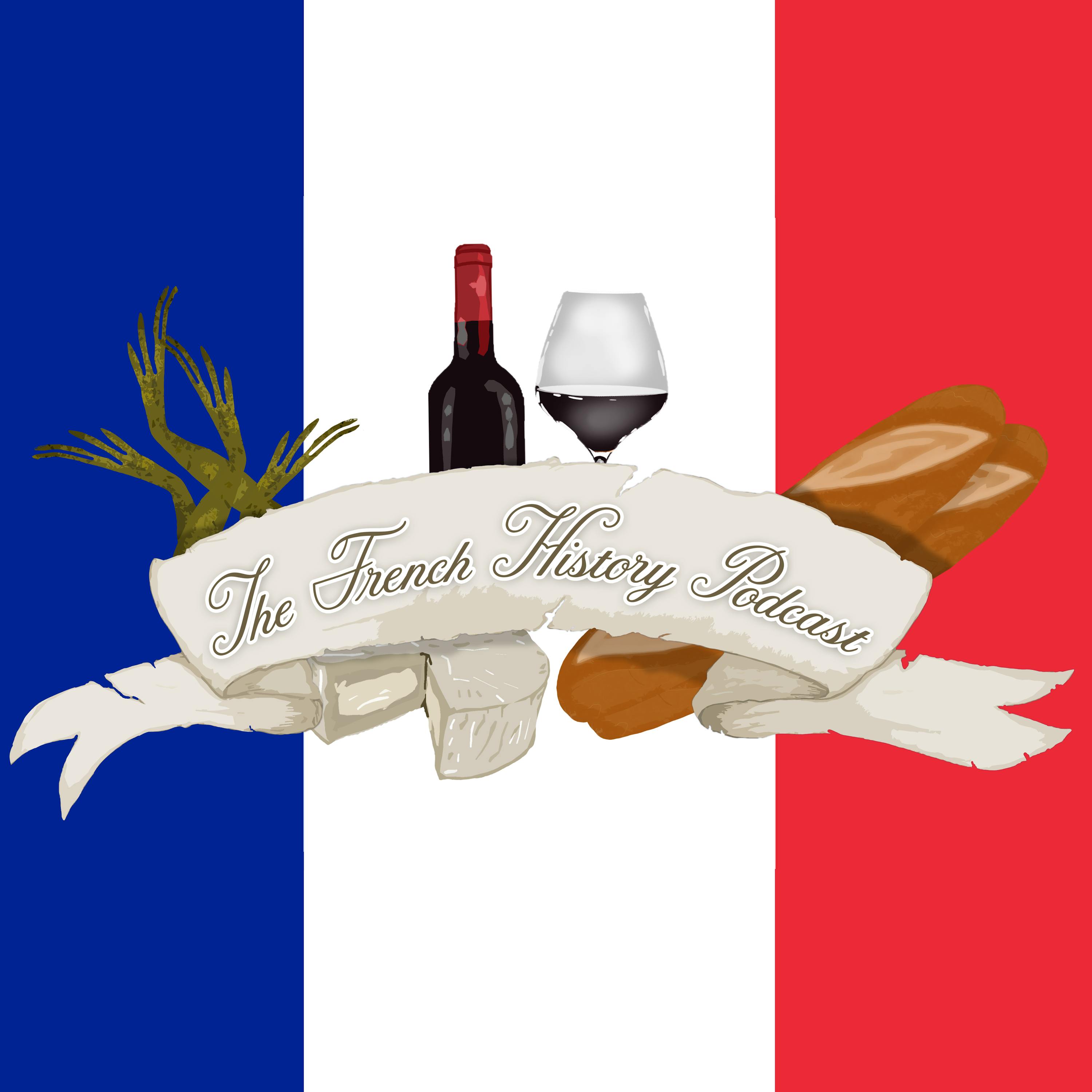
The French History Podcast
Evergreen Podcasts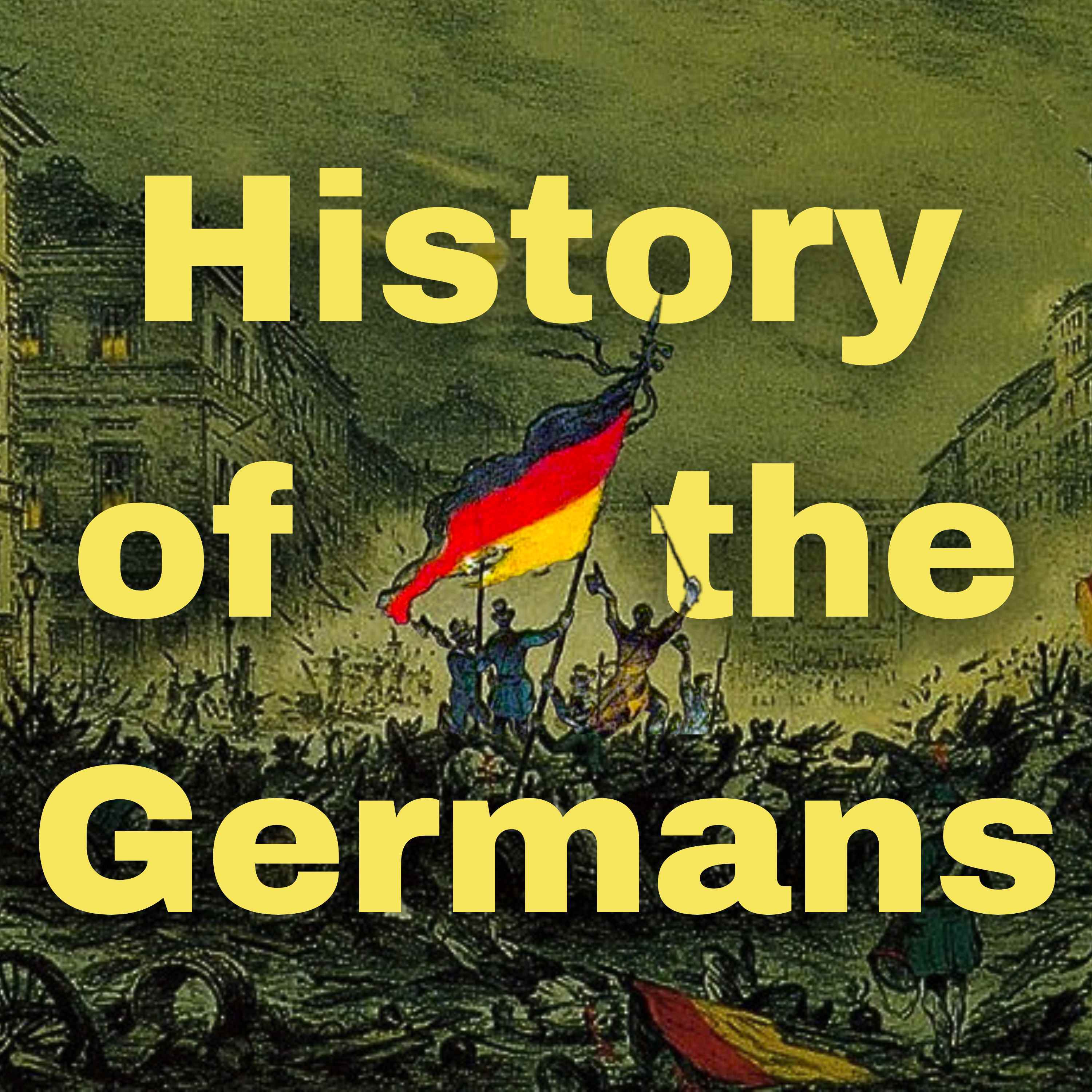
History of the Germans
Dirk Hoffmann-Becking
Half-Arsed History
Riley KnightFrench-Canadian Legacy Podcast
French-Canadian Legacy Podcast
The History of England
David Crowther
Canadian History Ehx
Craig Baird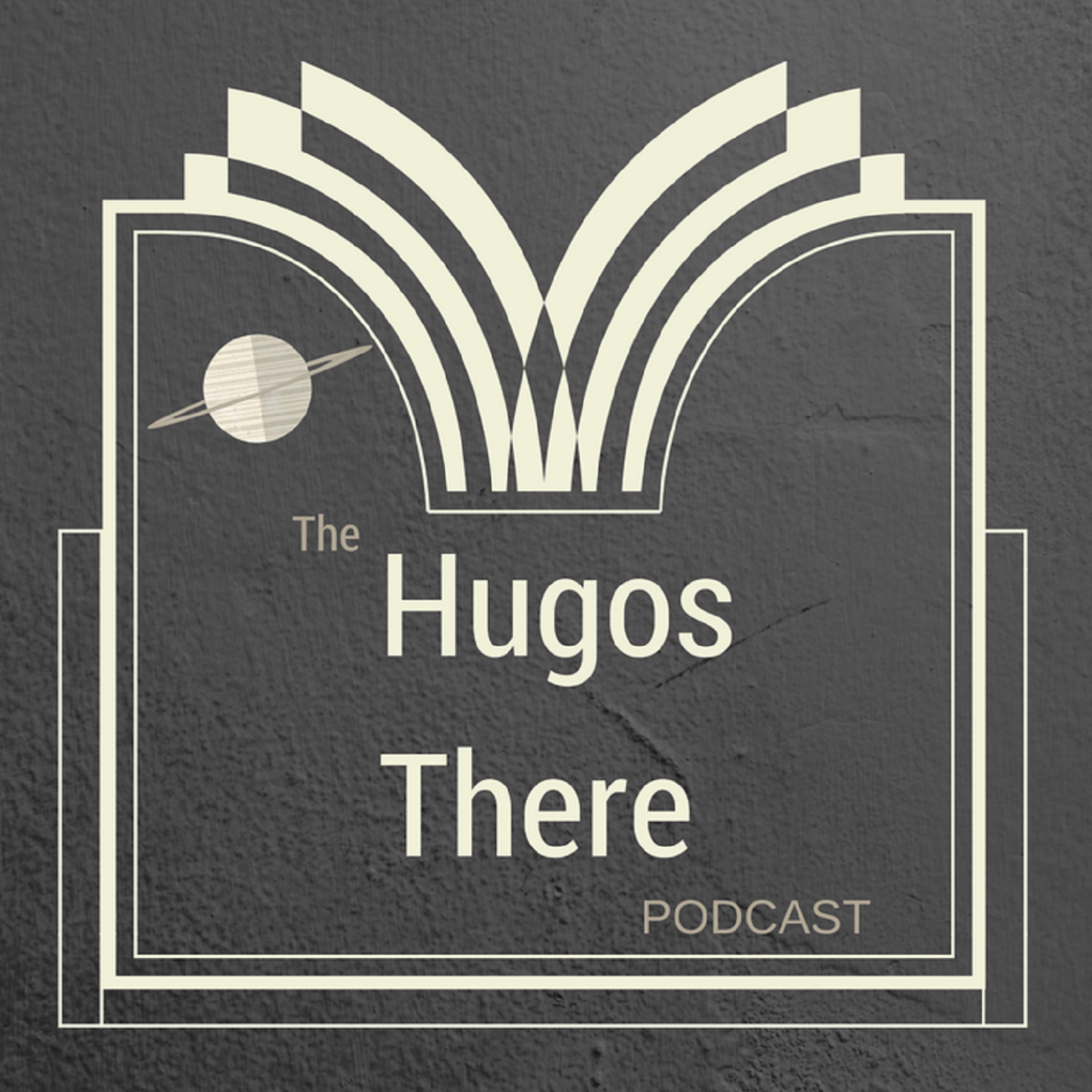
Hugos There Podcast
Hugos There Podcast
Hugo, Girl!
Hugo Girl

